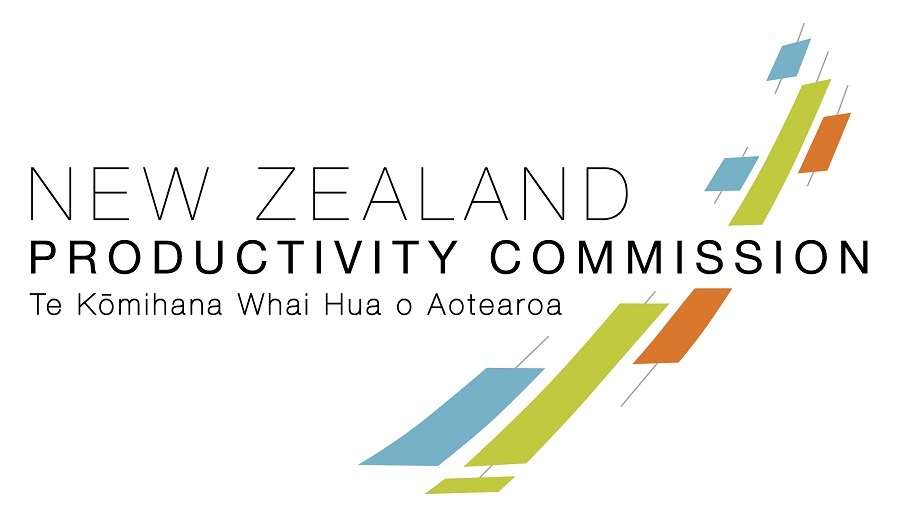
The Productivity Commission's Hamed Shafiee says the goal should not be simply to rebuild the economy we had, but to shift gear and find new ways for the economy to reach its full potential
by GuestBy Hamed Shafiee*
Over the last few months, both the government and businesses have been focused on the immediate need to survive the COVID-19 crisis. Now that New Zealand is at Alert Level 2, attention is shifting to economic recovery. Businesses are developing recovery plans and the government has established a $50 billion Covid-19 Response and Recovery Fund to support firms and the people who depend on them.
When thinking about recovery, the goal should not be simply to rebuild the economy we had. This is a chance to shift gear, to find new ways to help the economy reach its full potential, and to put the economy on a more prosperous and sustainable footing.
New Zealand has debated economic transformation along these lines for decades. But even the substantial economic reforms to open and free up the economy several decades ago have not resulted in productivity growth to the extent that many economists would have expected.
One possible reason is that our most productive “frontier” firms have not pulled their weight. In an inquiry underway, the Productivity Commission is investigating why New Zealand’s frontier firms are not as successful as elsewhere. The inquiry will look at what the government and business can do (or stop doing) to boost the productivity of frontier firms and help diffuse the knowledge, technologies and practices that they ought to demonstrate to other firms and employees. The inquiry has come at the right moment.
Other small advanced economies (such as Denmark, Finland, Netherlands and Singapore) look quite different in what they have done and achieved. New Zealand should learn from these countries’ successes, even if they don’t necessarily use textbook reforms. It is time for New Zealand to be bold and try something new.
Kiwi economist David Skilling has spent the last decade studying the performance of small advanced economies. In his report, released today, he points to the key lessons we may be able to draw from these economies.
Many are aware that the successful development of several East Asian economies came largely on the back of expanding export-oriented industries. Skilling argues that exporting is also the engine of productivity growth in successful small advanced economies. Domestic markets are too small to provide economies of scale, drive competitive behaviour, and incentivise businesses to invest upfront in large amounts of innovation, capital and skilled labour that are needed to increase their productivity. To overcome this barrier, New Zealand’s economic strategy needs to foster stronger international links and generate scale via exporting.
Another interesting argument in Skilling’s report is that successful small advanced economies tend to have several pronounced “clusters” of specialisation. These clusters are made up of related and supporting firms organised around strong capabilities and competitive advantages. They are supported by national research institutes and universities in both research and the supply of skilled graduates. Innovation, at the national level, happens primarily within and adjacent to these clusters. Many of these clusters are anchored by large, successful, exporting firms – from pharmaceuticals in Switzerland to renewable energy firms in Denmark.
The suggested lesson here is that our economic policy should support a handful of deep, sophisticated clusters that can innovate, develop and transfer tacit knowledge, and absorb shocks.
The report states that “small economies are ‘doomed to choose’ if they want to be successful… The risk of a level playing field approach that ‘lets a thousand flowers bloom’ is that it yields a thousand dead flowers, because firms do not have the topsoil of a surrounding cluster in which to grow to become frontier firms”.
But, even if this is the right approach, there is still the question of which clusters New Zealand should choose to focus on and nurture. Skilling argues that parts of the primary sector, such as dairying and horticulture, seem like obvious contenders given their scale. But how can they boost their growth and shift to higher-value products within the environmental goals New Zealand has set itself and in line with changing consumer preferences? Are there ownership, governance and capital-market problems to overcome?
Other candidates he identifies are the weightless industries such as digital, creative, and other knowledge-based services. In these industries, distance from market is much less of a barrier, and New Zealand has already developed some capabilities and competitive strengths. Yet precisely which industries the government should focus on remains an open question.
Many Kiwi firms are striving to be world class, but face challenges in doing so. The government can and should help by strengthening policies that promote innovation and skills development, investing in strategic infrastructure, and addressing management capability and incentive issues.
As noted above, the Commission is investigating frontier firms and their role in successful small advanced economies. It encourages everyone with an interest to read Skilling’s report and the Commission’s recently published Issues paper. Your feedback is invited. Your views will be invaluable to the Commission in its task of advising the government on how it could best help businesses innovate, grow and reach the productivity frontier.
The inquiry team is keen to speak with a variety of business owners, business leaders, employees and researchers. If you would like to share your thoughts with the Commission, you can make a submission or simply get in touch at: info@productivity.govt.nz.
*Hamed Shafiee is a Senior Advisor at the Productivity Commission